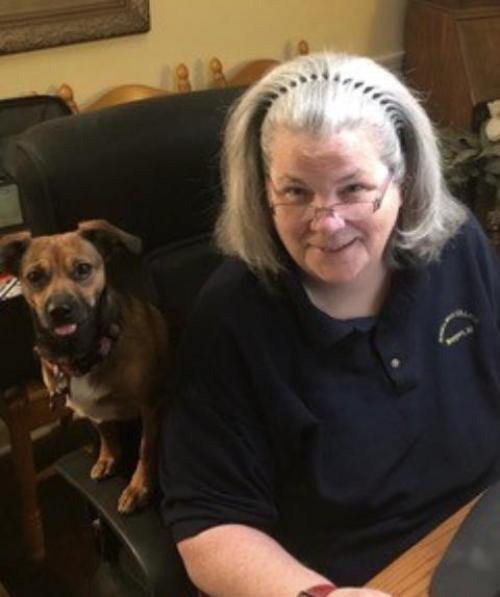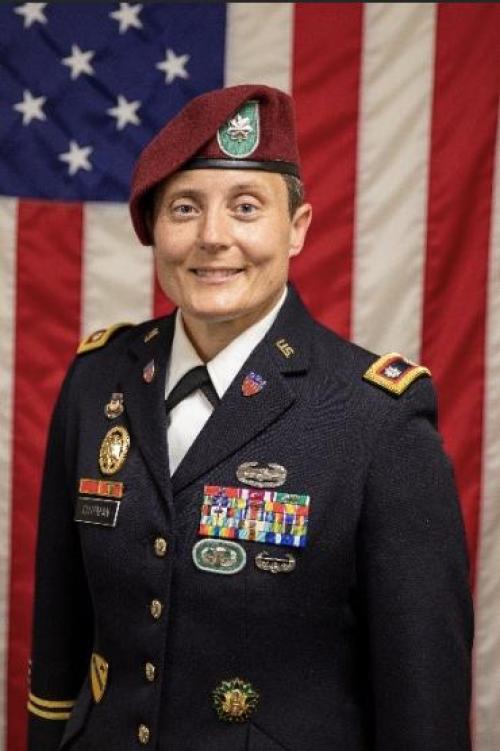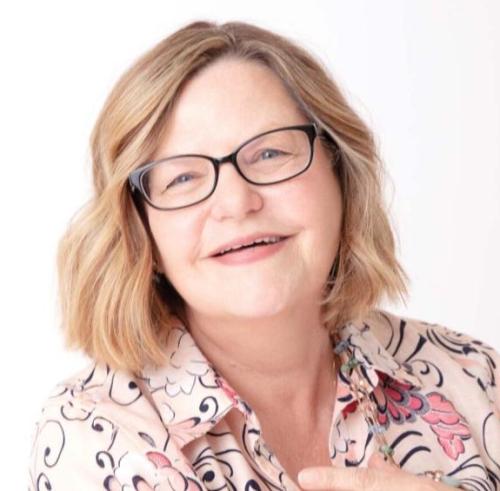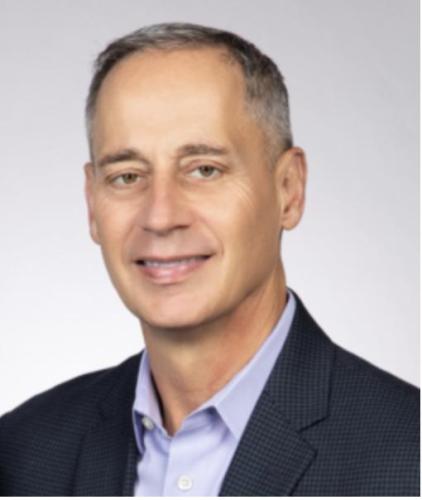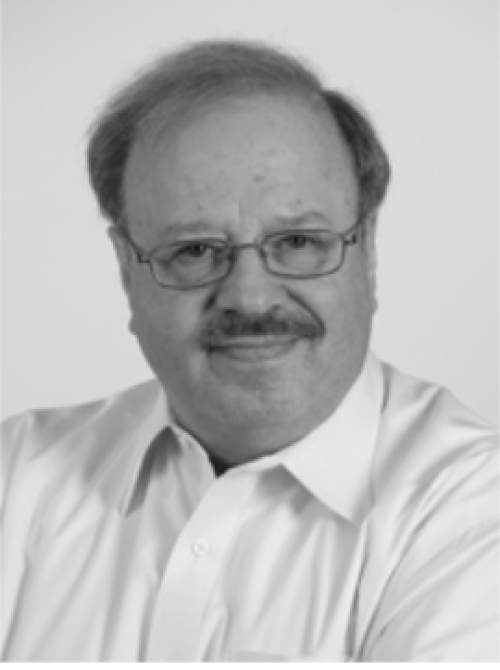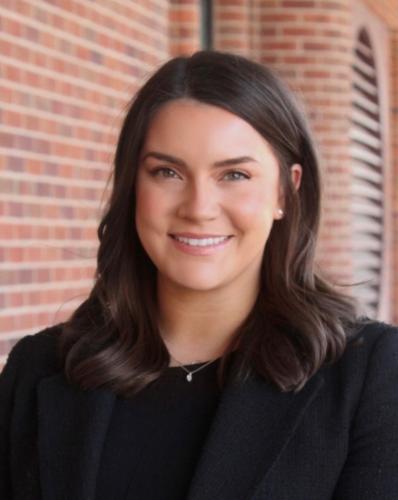The 2023 Veterans Clinic Symposium will be offered in-person and virtually. Register for free on the Registration tab. If you indicate that you would like to attend virtually, you will receive an email with a link to the livestream in the days leading up to the symposium.
April 28, 2023
About
Since 1775, when the U.S. military was founded, a wide range of discrimination has been practiced, including formal segregation, cultural racism, and gender inequality throughout the years. These discriminatory actions created conflict both during the service member’s active duty and, to a greater extent, afterward as veterans attempt to claim benefits they earned. This year’s Symposium will address these issues.
About the Veterans Clinic
Students in the University of Missouri School of Law Veterans Clinic help veterans and their families secure disability-related benefits. Student work is primarily focused on veterans benefits cases, as well as discharge upgrades.
Since its inception in 2014, the clinic has provided guidance to over 1300 veterans and family members. Each semester, Professor Drake oversees the work of 16 or more students, as they review veterans’ military records and disability files, track down witness statements and work with doctors to secure medical opinions.
The clinic is run like a law firm, providing Mizzou Law students with an experience designed to prepare them for the practice of law while securing retroactive monetary benefits for our nation’s veterans. To date, the clinic has recovered in excess of 12.5 million dollars for its clients.
If you have questions, please contact the Mizzou Law Veterans Clinic at 573-882-7630 or email mulawvetclinic@missouri.edu.
Registration
Registration is free, but required. The 2023 Veterans Clinic Symposium will be offered in-person and virtually. If you indicate that you would like to attend virtually, you will receive an email with a link to the livestream in the days leading up to the symposium. 6.8 Hours of MoBar CLE credits will be offered, including one hour of Cultural Competency, Diversity, Inclusion and Implicit Bias.
Program
April 28, 2023
MU Veterans Clinic Symposium
Discrimination in the Military and Thereafter: United We Stand, Divided We Fall
| 9:00 – 9:15 a.m. | Opening Remarks
Interim Dean Paul Litton |
| 9:15 – 10:45 a.m. | Unknown and Important Figures in American Military History You May or May Not Recognize—from the Hello Girls to “I am Vanessa Guillen”
Lieutenant Col. Angela Chipman, moderated by Amy Kretkowski, Esq. |
| 10:45 – 11:00 a.m. | Break |
| 11:00 – 11:50 a.m. | Discrimination in Military Discipline and Discharges: A Discussion of Research and Effective Advocacy
Student Veterans Advocates Research Presentations Moderated by Brent Filbert and Thomas Fellow Martha Bradley |
| 12:00 – 12:50 p.m. | A Judge Wrote What??? – True Stories from the Board of Veterans Appeals
Ethics Hour – Diversity, Equity and Inclusion Credit Prepared by Student Veterans Advocates, presented by Professor Chuck Henson |
| 1:00 – 1:15 p.m. | Lunch provided, donations requested |
| 1:15 – 2:30 p.m. | Advocating for Those Who Served, and Were Denied; Vindicating the Service of the Hello Girls
Keynote, Mark Hough, Esq. Interview by Claudia Friddell, author of the book, Grace Banker and Her Hello Girls Answer the Call: The Heroic Story of WWI Telephone Operators |
| 2:30 – 2:45 p.m. | Break |
| 2:45 – 4:00 p.m. | When No One Believes You – Discrimination in C&P Exams
Dr. Amy Beebe, Veteran Reginald Waxter, moderated by Amy Odom |
| 4:00 – 4:15 p.m. | Closing Remarks
S. David Mitchell, Ruth L. Hulston Professor of Law and Director of the Michael A. Middleton Center for Race, Citizenship and Justice |
Program Overview
Unknown and Important Figures in American Military History You May Not Recognize– from the Hello Girls to “I am Vanessa Guillen”
Lt. Col. Angela Chipman is a frequent lecturer on military history. In this kick-off segment for the day, she will focus on important figures, often women and racial minorities, who have received little to no recognition for their contributions to our Nation’s security and defense. Her engaging teaching style will leave attendees with a new and fuller understanding of historic discrimination in the military. She will also touch on recent events in Fort Hood, including the tragic story of Vanessa Guillen, murdered by her fellow soldiers. Moderator Amy Kretkowski is an experienced veterans advocate and a favorite speaker from past Symposia.
Discrimination in Military Discipline and Discharges: A Discussion of Research and Effective Advocacy
Racial, sexual, and other types of discrimination have a deep impact on service members’ lives, both during their time in service and beyond. Through both military discipline proceedings and the process of awarding discharges, many service members and veterans find themselves facing a long-term impact on their military record and benefits status. Discrimination within those processes is pervasive and widespread. For example, black service members face disproportionate numbers of Other Than Honorable discharges and courts martial. There is also evidence that military discipline and exit procedures are being used in an unequal manner to force out service members who are of different backgrounds. This presentation will examine recent research regarding the impact discrimination plays in the process of military discipline and discharges. Further discussion will examine how to effectively advocate for veterans who have been impacted by discrimination during their time in the military and their exit from the service. Brent Filbert, who will lead the discussion, has a long and storied career as a trial attorney and judge in the military justice system and as an advocate in discharge upgrades.
A Judge Wrote What??? – True Stories from the Board of Veterans Appeals
For seven years, a Board of Veterans Appeals Judge and a Board attorney participated in an exchange of emails which contained ”disturbingly inappropriate” statements about other Board employees. They labeled their email chain “the Forum of Hate.” These emails contained derogatory comments about their colleagues’ race, sexual orientation, national origin and socioeconomic background. By way of one example, the Board Attorney referred to the Chief Veterans Law Judge as a “Ghetto Hippopotamus” and “a despicable impersonation of a human woman, who ought to [have]her cervix yanked out of her by the Silence of the Lamb[s] guy and force [-] fed to her.” The conduct violated three rules of professional responsibility. The State of Maryland indefinitely suspended the law licenses of these attorneys. In this segment, Professor Chuck Henson, an expert on these issues, will discuss the offensive emails in light of the applicable rules of professional responsibility.
Advocating for Those Who Served, and Were Denied; Vindicating the Service of the Hello Girls
The Signal Corps operators, affectionately called “Hello Girls” were America’s first women soldiers. During their time in service their skills were integral in winning World War I. General John Pershing, commander of the American Expeditionary Forces, called for expert female switch board operators who were fluent in French as well as English, when inexperienced doughboys proved to be unfit for the job. Pershing recognized that without communication for even an hour, the military effort would collapse. While the Signal Corps women operators faced many challenges in a war zone, their swift skills and positive attitudes earned them the respect of their male colleagues in the military. The Hello Girls underwent baptism by fire when German troops pounded Paris with heavy artillery. Sadly, following their honorable military service, these women did not receive either military recognition or veterans benefits. Thanks to Mark Hough and the National Organization of Women’s dedicated crusade on their behalf, President Jimmy Carter signed into law a statute recognizing the Hello Girls’ meritorious service. Claudia Friddell will interview Mark Hough to discuss his success in helping the Hello Girls receive their historic recognition as the first women soldiers.
When No One Believes You – Discrimination in C&P Exams
Veteran Reggie Waxter served our nation during the Vietnam War as a sailor onboard the USS Constellation He experienced racism while serving in the military, when he was wrongfully jailed for inciting what the New York Times called the “Black Power Riot” in Scotland. By way of brief background, which Reggie will share more fully in this segment, he sailed to Scotland after joining the Navy at age 18. Racism was rampant in Scotland and in the United States Navy. While on liberty in Scotland, Reggie and a few of his shipmates were attacked by a group of white Scottish locals. He and three other African American sailors were beaten and then charged by local Scottish authorities for inciting a riot. He was imprisoned in Scotland for over one year.
Since his general discharge from the Navy, Reggie has battled with Post Traumatic Stress Disorder. Even though Reggie was assaulted in Scotland, while in the Naval service, his requests for disability compensation were repeatedly denied by VA. Finally, with the help of Student Advocates at the Veterans Clinic, and Dr. Amy Beebe, Reggie now receives the benefits he has long been entitled to receive.
In this segment of the program, Dr. Beebe will explain how, after attentively listening to the veteran and writing a complete and accurate report, VA finally granted the PTSD claim. Veterans Advocate Amy Odom will discuss recent developments in a class action challenging VA’s alleged discriminatory claims practice, as well as the SSRN literature discussing discrimination in C&P exams. Amy has been successfully serving veterans for many years, as an attorney with the National Veterans Legal Services Program and now with Chisolm, Chisholm and Kirkpatrick.
Speakers
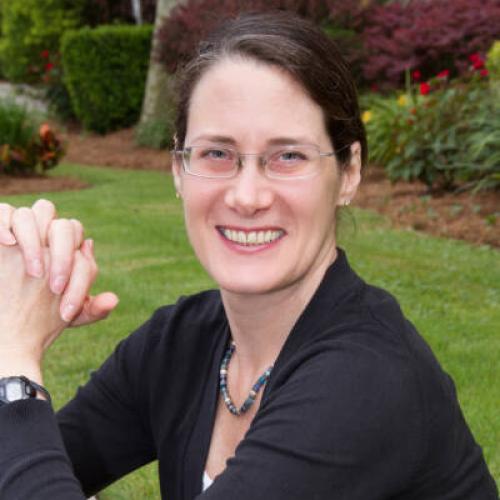 Amy B. Kretkowski
Amy B. Kretkowski
Professor of Veterans Benefits Law, University of Iowa College of Law
Amy B. Kretkowski is a veterans law attorney in private practice in Iowa City, IA, and an Adjunct Professor of Veterans Benefits Law at the University of Iowa College of Law. She is also a member of the NOVA (National Organization of Veterans Advocates) Board, a mentoring attorney with The Veterans Consortium Pro Bono Program; and a member of the Military Affairs Committee of the Iowa State Bar Association. Kretkowski has taught CLE programs and conducted annual training for various veterans’ service groups in Iowa and around the country. She has presented at several NOVA conferences and the CAVC’s 2016, 2019, and 2022 Judicial Conferences.
Kretkowski began her career in veterans’ law in 2009 as a judicial law clerk to the Honorable Mary J. Schoelen on the CAVC. She received her J.D., with distinction, from the University of Iowa College of Law, and her B.F.A. from New York University’s Tisch School of the Arts. Before moving to Iowa to study law, she spent 18 years as an independent writer/producer in the television industry in New York and Los Angeles. She currently lives in a 108-year-old house in Iowa City with her husband Paul, several angry ghosts and an emotionally unstable husky mix named Ruckus.
Amy B. Beebe
Psychologist and Health Service Provider
Dr. Amy Bolton Beebe, Ph.D., DABPS, received her Bachelor of Arts in Psychology from Westminster College in Fulton, Missouri, in 1987. From there, she went on to the University of Southern Mississippi in Hattiesburg where she earned her doctorate in 1991.
She then entered private practice where she has amassed over 31 years of experience. Non-exhaustively, along the way, Dr. Beebe became a Diplomate of the American Board of Psychological Examiners, gave lectures, and conducted service instruction to schools and major companies. Later, she turned her focus to conducting veteran’s exams as a third-party contractor.
Thankfully, after a botched Compensation & Pension (C&P) Examination, Dr. Beebe was connected to Veteran Reggie Waxter (see bio below) through the Mizzou Law Veteran’s Clinic. She worked extensively on Veteran Waxter’s case where among other things, she tracked down what were thought to be nonexistent medical records and helped to formulate the argument that won Veteran Waxter a 70% disability rating for his PTSD. Veteran Waxter has described Dr. Beebe as a “dynamite person” as will be apparent at this year’s Symposium.
Amy Odom
Appellate Strategy Coordinator at Chisholm, Chisholm & Kilpatrick’s Veterans Law Practice
Amy Odom is the Appellate Strategy Coordinator in Chisholm, Chisholm & Kilpatrick’s (CCK) Veterans Law practice. Her practice focuses on representing disabled veterans at the Court of Appeals for Veterans Claims and the Court of Appeals for the Federal Circuit.
Amy graduated from the University of Florida with her B.A., cum laude, in 2003 and her J.D., cum laude, in 2006. During law school, she participated in the moot court program, was an intern at the Center for Government Responsibility, and was an extern for the Honorable Stephan Mickle, Northern District of Florida. Before joining CCK, Odom was a staff attorney and then the Director of Litigation at the National Veterans Legal Services Program (NVLSP). From 2006 to 2008, she was an Attorney-Advisor at the U.S. Department of Labor, Office of Administrative Law Judges.
Extremely active in the field of Veterans Law, she has served as President of the CAVC Bar Association and on the USCAVC’s Judicial Advisory Committee. She is a member of the National Organization of Veterans’ Advocates (NOVA). Odom was a panelist at the USCAVC Twelfth Judicial Conference in 2013 and the Fourteenth Judicial Conference in 2019. She is a credited author of the Veterans Benefits Manual 2009-2013 editions, and a credited Editor of the 2014-2018/2019 editions. She has been a recurring speaker at the National Organization of Veterans Advocates conferences and the University of Missouri Veterans Clinic Symposium.
In her free time, Amy enjoys spin classes on her Peloton, spending time with her two little girls and Navy vet husband and taking annual family vacations to her home state of Florida.
Lieutenant Colonel Angela N. Chipman
Headquarters, 1st Special Forces Command
Lieutenant Colonel Angela “Angie” Chipman joined the Headquarters, 1st Special Forces Command in June 2022. She is currently the Assistant Chief of Staff, G1 (Human Resources) for the organization, overseeing the personnel readiness, strength, and distribution of greater than 23,000 Active and National Guard personnel, DA Civilians, and the families that support them.
She recently served in the Department of the Army Integrated Personnel and Pay System – Army (IPPS-A) team where she oversaw the capability development of the fourth roll-out for IPPS-A, and the integration of both Military Pay (MILPAY) and the General Fund Enterprise Business System (GFEBS) into the Army’s larger Human Resources system of record.
Prior to joining IPPS-A, LTC Chipman was appointed as the Sexual Harassment/Assault Response and Prevention (SHARP) Program Task Force lead for III Corps and Fort Hood, while also serving as the Director of the III Corps Strength Management Branch.
Lieutenant Colonel Chipman enlisted in the Iowa Army National Guard as a Combat Medic with the 109th Medical Battalion, serving in various positions as squad leader before attending Officer Candidate School. She was commissioned as a Second Lieutenant in the Signal Corps and has served at various levels of both command and staff positions throughout her career.
She is a graduate of Iowa State University, with a Bachelor of Science in both History and Psychology. She is a graduate of the University of Iowa, with a master’s degree in School Counseling. She holds certifications both as an educator and in Professional Human Resource management. She is a graduate of the Signal Officer Basic Course, the Signal Officer Advanced Course, the Quartermaster Officer Advanced Course, the Human Resources Qualification Management Course, and the Command and General Staff College.
She has served as a Platoon Leader, Company Executive Officer, and Battalion S1 in the 234th Signal Battalion, a Battalion S4 in the Brigade Special Troops Battalion 2nd Brigade, 34th Infantry Division, and followed that assignment as the Headquarters and Headquarters Company Commander for 2nd Brigade, 34th Infantry Division. After coming on to active duty, she served as a Battalion S1 in 2nd Battalion, 8th Field Artillery, 1/25th SBCT out of Fort Wainwright, AK. She served as the XO to the G1, FORSCOM at Fort Bragg, NC. Her Key Development time was as the Brigade S1, 3rd Brigade, 4th Infantry Division, as the Deputy G1 for 1st Cavalry Division, and the Secretary of the Joint Staff for TAAC-S HQ. She has been deployed to Afghanistan twice and to Europe once in support of the European Deterrence Initiative (EDI).
LTC Chipman’s military decorations include the Bronze Star Medal w/ 1 OLC, the Meritorious Service Medal w/ 5 OLC, the Army Commendation Medal w/ 7 OLC, the Army Achievement Medal w/ 5 OLC & “C” Device, the National Defense Service Medal, the Global War on Terrorism Service Medal, the Global War on Terrorism Expeditionary Medal, the Military Outstanding Volunteer Service Medal, the Combat Action Badge, the Air Assault Badge, and the Parachutist Badge. She is married to COL Seana M. Jardin and has three dogs named Jackson, Boo, and Sammy.
Angela K. Drake
Director and Supervising Attorney of the Veterans Clinic, University of Missouri School of Law
Angela K. Drake is the director and supervising attorney of the Veterans Clinic at the University of Missouri School of Law. She also teaches Trial Practice and Pretrial Litigation. She received her undergraduate degree from the College of St. Thomas in St. Paul, Minn. in 1982 and her law degree from the University of Minnesota School of Law in 1985.
After practicing complex and class action litigation, as well as insurance coverage and defense for more than 25 years, Prof. Drake followed her passion for public service by taking on the role of the Veterans Clinic’s first director. As an Army Brat herself, she takes special joy in working with students to serve veterans and their family members seeking benefits from the Department of Veterans Affairs. In addition, and in her individual capacity as director of the clinic, Prof. Drake enjoys participating in amicus curiae briefing in cases that impact veterans.
Prior to her clinical work at the law school, Prof. Drake practiced law as a shareholder in the firm of Niewald, Waldeck and Brown in Kansas City and as a member of Lowther Johnson, LLC in Springfield, Mo.
Brent Filbert
Director of Military Law, Veteran Advocacy Project
Brent Filbert is the Director of Military Law at the Veteran Advocacy Project (VAP). From 2018 to 2021, he served as the Clinical Director at the Veterans Clinic at the University of Missouri School of Law, where he oversaw all discharge upgrade cases. In addition to teaching veterans and law and trial advocacy, he also represented veterans in VA disability compensation appeals, prepared and submitted amicus briefs in important veterans law cases, and assisted in putting together the annual national symposium on veterans law issues.
Prior to joining the Veterans Clinic, Filbert spent 30 years as an attorney in the military and in private practice. He served as Appellate Defense Counsel and Judge for the Navy-Marine Corps Court of Criminal Appeals; he was a prosecutor and defense counsel in military criminal trials; and he worked as a Special Assistant U.S. Attorney in Philadelphia, Pennsylvania. He retired as a Navy Captain in 2018. In private practice, Filbert served as litigation counsel for Hughes, Hubbard & Reed, and a partner at Shook, Hardy & Bacon, working as a litigation attorney on product liability and toxic tort cases. He is an undergrad alum of University of Missouri (with honors), and received his J.D. (with distinction) at University of Missouri – Kansas City. He is also a distinguished graduate of the Naval War College – College of Naval Command and Staff, and has an LL.M. in Trial Advocacy from Temple University School of Law.
Claudia Friddell
Author
For award winning narrative nonfiction author, Claudia Friddell, the next best thing to time travel is finding and sharing exciting real-life stories from long ago. A former elementary school teacher, Friddell hopes to inspire readers of all ages with stories of little known or long forgotten events that helped shape our nation. When she’s not digging for treasure in the library, writing, or visiting schools, she’s kayaking, taking walks, and reading on the Eastern Shore of Maryland. Visit www.claudiafriddell.com to learn more about her books: Grace Banker and Her Hello Girls Answer the Call, Road Trip!, To the Front! Clara Barton Braves the Battle of Antietam, Saving Lady Liberty, Goliath, Hero of the Great Baltimore Fire, George Washington’s Spies, and her upcoming book, Cool Off and Ride!
Friddell’s book, Grace Banker and Her Hello Girls Answer the Call, received the following awards: Junior Library Guild Selection, Septima Clark Women in Literature Honor Award, NCSS/CBC (National Council for the Social Studies) Notable Social Studies Trade Book, Bank Street Best Books of the Year and ALA (American Library Association) Rise: A Feminist Book Project List.
Mark M. Hough
Mark Hough is an alum of the University of Washington in Seattle, where he received his undergraduate degree in 1966 and J.D. in 1971. Mark has worn many hats throughout his career, all of which exhibit his dedication and determination to the community. After undergrad, Mark worked at Boeing as a capital assets accountant. After law school, Mark began his legal career as an associate at a law firm and later served as an assistant manager of another law firm. Mark is also the author of “United States Army Air Ambulance” (1999).
Throughout his professional career, Mark remained involved in community work. He was a board member and served as president at Eastside Recovery Center and continued in these roles after they merged into Therapeutic Health Services, for over 10 years total. From the years between 2000 and 2007, Mark simultaneously served as both a board member and president of Therapeutic Health Services, while being a board member and chair of the resource development committee at Skills Inc. In addition to those roles, Mark found time to volunteer with Washington Lawyers for the Arts for a total of 11 years. It is no question that Mark is a leader and loyal to the community and his clients in any role.
In the 1970’s, after first reading about the Hello Girls’ fight in the newspaper, Mark volunteered his legal services as a young attorney to help the Hello Girls, the women soldiers who served as World War I Signal Corps operators. Due to Mark’s dedication and persistence on their behalf, President Jimmy Carter signed the law requiring official military discharge papers and the award of Victory Medals to the Hello Girls. Because of Mark, the government finally acknowledges the women in Hello Girls as not only veterans, but the very first women soldiers in the military.
Martha (Bradley) Kleinhesselink
Thomas Fellow of the Veterans Clinic, University of Missouri School of Law
Martha (Bradley) Kleinhesselink is the inaugural Ben and Carolyn Thomas Fellow in the Veterans Clinic at the University of Missouri School of Law. She works as an attorney in the Clinic representing veterans and focuses much of her work on the Clinic’s rural outreach program, Tigers for Troops. Through this program, the Clinic holds free legal consultations for veterans in rural Missouri who have less access to necessary veteran resources. Kleinhesselink also plans and executes free CLE programming for Missouri attorneys who are interested in representing veterans in their pro bono practice.
Kleinhesselink is a graduate of Central Methodist University where she received degrees in Political Science and Criminal Justice. She earned her JD from the University of Missouri.
She discovered her passion for helping veterans many years ago and entered law school with the hope that she would use her law degree to serve veterans in some capacity. After working in the Mizzou Law Veterans Clinic as a law student, under leadership from Angela Drake and Brent Filbert, Kleinhesselink’s passion was solidified.
Kleinhesselink is a member of the Missouri Bar Association, the CAVC Bar Association, the National Organization of Veterans Advocates, and is a VA Accredited Attorney.
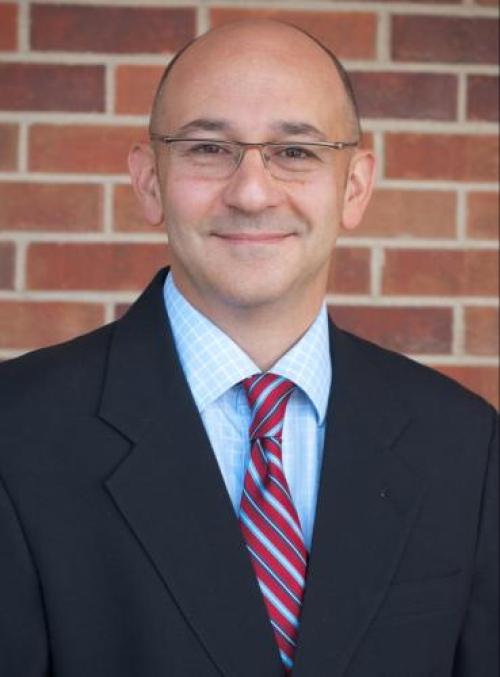 Paul J. Litton
Paul J. Litton
Interim Dean and R.B. Price Professor of Law, University of Missouri School of Law
Paul Litton began as interim dean in July 2022. He joined the Mizzou faculty in 2006. He received a JD and PhD from the University of Pennsylvania, where he studied through the University’s Joint Program in Law and Philosophy and was awarded the Lynn Lukens Moore Prize in Jurisprudence by the Law School. He was law clerk to Chief Justice Deborah T. Poritz of the New Jersey Supreme Court, serving a second term as the Court’s death penalty law clerk. From 2004 to 2006 he was a fellow in the Department of Clinical Bioethics within the National Institutes of Health.
Dean Litton’s research primarily focuses on moral philosophy and criminal law theory, with a particular focus on the capacities required for agents to be fairly held morally and criminally responsible for their conduct. He also has published multiple papers in bioethics with a focus on ethical issues for health care professionals outside the medical care context. His work appears in peer-reviewed journals across disciplines, as well as in traditional law reviews.
From 2010-12, Dean Litton co-chaired the Missouri Death Penalty Assessment Team, assembled by the American Bar Association to study and make recommendations regarding the laws and practices of Missouri’s capital system. The team included retired and active judges, former prosecutors and defense counsel, and academics with diverse views about the capital punishment. Its report, published in March 2012, can be found here.
Dean Litton has twice received the School of Law’s Shook Hardy & Bacon Award for Excellence in Research, and has been recognized for teaching. He has received the Gold Chalk Award from the University’s Graduate Professional Council and the Husch Blackwell Distinguished Faculty Award for Teaching. Professor Litton teaches Criminal Law, Criminal Procedure, Death Penalty Law, Jurisprudence, and Bioethics & Law.
From 2015 to 2022, Dean Litton served as Associate Dean for Research and Faculty Development at the School of Law. He also was Director of the Office of Academic Integrity within the Office of the Provost from 2017 to 2022. He began his term as Interim Dean in July 2022.
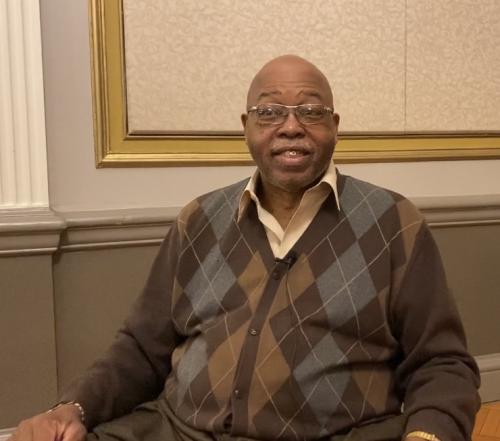
Reginald (Reggie) Waxter
US Navy Veteran
Veteran Reginald Waxter was born September 22, 1953. In 1972, at the age of 18, Mr. Waxter joined the Navy. He was deployed to Holy Loch, Scotland aboard the U.S.S. Canopus, a submarine tender. He originally served as a boatswain’s mate but later joined the carpentry shop where, among other things, he made plaques for ingoing and outgoing officers as well as crates for broken submarine materials and parts that were sent back to the United States for repairs. His official designation was a Navy E-3 Fireman, denoting his membership of the ship’s engineering community.
The start of Veteran Waxter’s PTSD began at a local bar on shore leave where he and a few of his shipmates were harassed by Scottish locals. These locals later jumped the sailors while they were waiting on a cab, leaving them badly injured. In retaliation, Veteran Waxter, along with almost 200 others, rioted in Holy Loch. As a result, the crew of the U.S.S. Canopus was restricted to the ship.
Adding to Veteran Waxter’s PTSD, he was subsequently cornered by three or four of his fellow white sailors, one of whom pulled out a knife and cut Veteran Waxter across his hand. He chose not to report the incident for fear of further retaliation. After the fact, Veteran Waxter and a few of his shipmates were charged with mobbing and rioting by an all-white, Scottish jury. They had to pay for their own attorney and spent a year in Scottish prison where Veteran Waxter witnessed the murder of a cellmate.
Despite the seriousness of the alleged conduct, Veteran Waxter received a general discharge. He then began a long and strenuous journey to receive compensation for his service-related PTSD. His journey eventually led him to the Mizzou Law Veteran’s Clinic, who with the help of Dr. Amy Beebe, fought and finally secured compensation for Veteran Waxter.
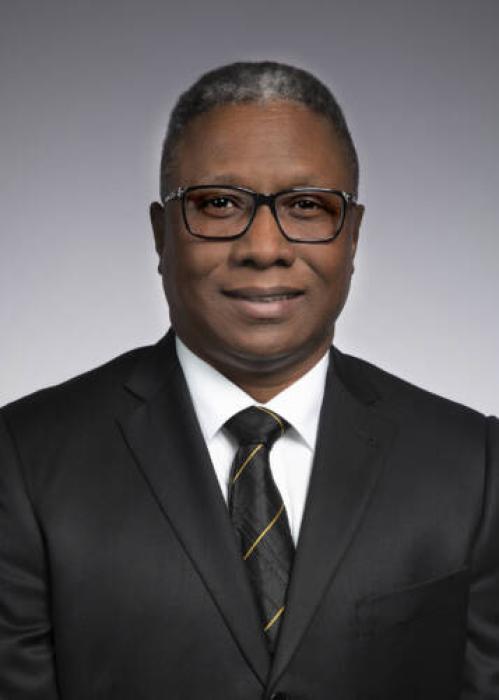 S. David Mitchell
S. David Mitchell
Ruth L. Hulston Professor of Law and Director of the Michael A. Middleton Center for Race, Citizenship and Justice
Professor Mitchell is an interdisciplinary scholar. He examines the criminal justice system using a sociological lens specifically focusing on the collateral consequences of sentencing; ex-offender reentry and reintegration; and felon disenfranchisement. His other scholarship includes articles on zero-tolerance policies; and the retroactive application of laws. He has served on numerous academic and public panels and been interviewed and quoted in a variety of news outlets.
He joined the University of Missouri School of Law faculty in 2006. Prior to joining the legal academy, he served as a law clerk to the Honorable Andre M. Davis, formerly of the U.S. District Court and as a Scholar in Residence in the Sociology Department at the University of Colorado in Boulder. He is an affiliate faculty member of the MU Black Studies and the Kinder Institute on Constitutional Democracy. He is also a member of the graduate faculty of the Sociology Department. He has served as the Chair of the University of Missouri System on Diversity, Equity and Inclusion Task Force and the University of Missouri Faculty Advisory Council for Diversity, Equity and Inclusion.
He is a member of the American Law Institute. He is a member of the Missouri State Advisory Committee to the U.S. Commission on Civil Rights, serving as Chair from 2016-2017, and has served as a Missouri Supreme Court Faculty Fellow. He has been recognized for his teaching and service as a recipient of the Gold Chalk Award; the Legion of Black Collegians Minority Faculty and Staff Appreciation Award; the 2014-2015 Lloyd L. Gaines Scholarship Banquet Honoree; the MU President’s Community Engagement Award; and the Missouri Lawyer’s Media Diversity and Inclusion Award. He was also recently inducted into the Rollins Society at the University of Missouri.
Sponsors
This symposium is made possible due to the generous support of our sponsors:


Joe and Jill Harper

![]()



Symposium Materials
Session 3: A Judge Wrote What??? – True Stories from the Board of Veterans Appeals Part 1
Session 3: A Judge Wrote What??? – True Stories from the Board of Veterans Appeals Part 2
Session 4: Advocating for Those Who Served, and Were Denied; Vindicating the Service of the Hello Girls
Session 5: When No One Believes You – Discrimination in C&P Exams
